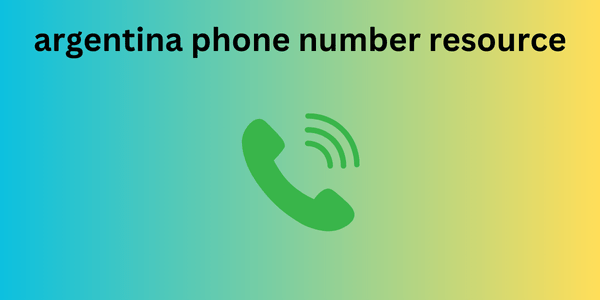Not seeing a privacy policy in the footer of a website may cause some consumers to raise an eyebrow.
That’s because more and more people are realizing that these aren’t just pop-up nuisances or documents full of legal jargon — data privacy laws legally require businesses to publish them.
They also help ensure that website visitors are adequately informed about what will happen to their personal information when using a website.
But could ignoring privacy compliance hurt your search rankings?
In this article argentina phone number resource we explore the importance of data privacy and how it can impact your search engine optimization (SEO) efforts, brand reputation, and more.
Can Ignoring Privacy Compliance Hurt Your Rankings?
Technically, nothing indicates that search engine algorithms penalize websites specifically for ignoring privacy compliance — but that doesn’t mean it’s okay to skip putting up a transparent privacy policy or consent banner for your site.
If people see your site as unsafe, you could see reduced user engagement, and if you violate data privacy laws, you could face real legal consequences.
Let's review what we know about the potential ranking repercussions of non-compliance with data privacy laws and best practices.

Losing Consumer Trust and Engagement
Websites that do not prioritize data privacy risk compromising consumer trust, which can impact your rankings due to low consumer engagement.
If consumer engagement on your site decreases due to privacy concerns, this directly impacts your SEO because data like click-through rates (CTR) and time on pages are crucial ranking signals.
Various data privacy statistics also highlight the growing need for websites to gain user trust in data processing:
88% of users say they are more willing to share personal data if they trust a company.[( https://www.pwc.com/sg/en/tice/assets/t ... 201208.pdf ))
60% of users say they would spend more money with a brand they trust with their data.[( https://www.truata.com/resources/report ... port-2021/ ))
94% of organizations say consumers will not buy from them if they do not adequately protect their personal data.[( https://www.cisco.com/c/en/us/about/tru ... y-findings ))
But this is nothing new. In 2019, a Google Product Specialist , in response to a Google Search Console thread asking whether it was worth setting the privacy policy and terms and conditions to Noindex/Nofollow, recommended indexing these documents as it could help Google build more trust in the site in question .
Indexing - Twitter - X by Google Product Expert
In 2020, a Google Product Specialist responded to another thread asking about the impact of privacy policies and terms and conditions on SEO , stating that websites that collect data from users should have a privacy policy because it's good for a site's reputation.
SEO Impact on privacy policies by Google Product expert
At the end of the day, if you don't earn the trust of your users, they won't spend much time on your website and engage with the links, which will hurt your overall search rankings.
Having privacy essentials like a cookie consent manager and privacy policy properly informs site visitors so they know they can trust you with their data and navigate your website with confidence.
Possible Legal Penalties
Legal penalties and fines are real consequences your website can face if it ignores privacy compliance requirements.
While this may not hurt your rankings, it can hurt your overall brand reputation.
